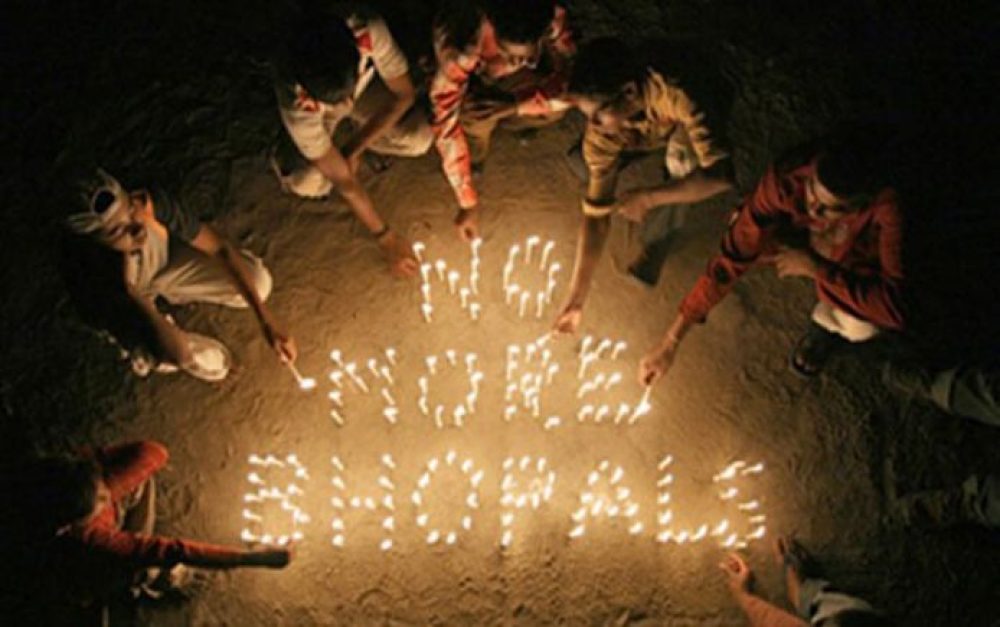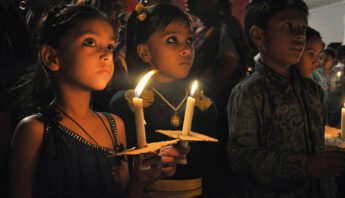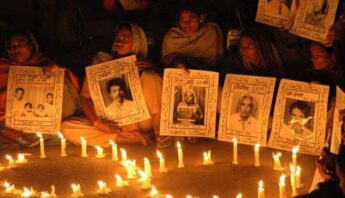Three legal developments in the last week — in New York, New Delhi and Bhopal — set back the quest for compensation and contamination cleanup for residents of Bhopal who were killed or injured in the 1984 pesticide plant explosion, one of the world’s worst industrial disasters.
Not only were local residents harmed directly by the blast, but contamination at the accident site continues to put the surrounding community's health at risk. At the center of the past week's legal proceedings is the issue of corporate accountability for crimes against humanity, with Dow Chemical front and center.
On July 30, District Judge John Keenan of the U.S. Southern District of New York dismissed the second of a long-running set of suits aimed at holding Union Carbide Corporation (UCC) and its owner, Dow, responsible for faulty design of the Bhopal pesticide plant and pollution of the site and surrounding area.
On August 1, India’s Supreme Court announced that it would hear a “curative petition” for compensation of those injured or killed by the Bhopal gas explosion and the ongoing disaster caused by persistent contamination of soil and water.
And on August 4, the Bhopal District Court summoned Dow to appear in the ongoing criminal case over responsibility for the 1984 blast.
Is anyone accountable?
In dismissing the U.S. suit, Judge Keenan wrote: “The manufacturing processes and waste disposal systems to be implemented at the Bhopal Plant were all initially proposed by UCIL (Union Carbide India Limited).” Thus Union Carbide Corporation (UCC), though majority owner and supplier of UCIL (and by extension Dow, current owner and manager of UCC), could not be held responsible.
Keenan took a similar position in 2012 when he absolved Warren Anderson, CEO of UCC at the time of the explosion, of individual liability because "he did not personally approve the location of the Bhopal plant.”
The plaintiffs’ lawyer, Marco Simons, legal director of EarthRights International, stated:
“The evidence demonstrates that Union Carbide was intimately involved in every aspect of designing and building the Bhopal plant, including the waste disposal systems that caused the pollution.”
The organizations and Bhopali residents who brought the suit plan to appeal.
Getting the numbers right
In New Delhi, the case for compensation of victims filed in 2010 was to be heard by the Supreme Court on August 5. Representatives of Bhopal survivor organizations appealed to the Prime Minister on August 2 to intercede and correct counts of those affected. The numbers of those killed or injured immediately in the blast, and those who have been affected by ongoing toxic exposures as well as inherited disabilities, are more than four times the 5,295 being considered by the court, according to the government’s own studies.
Highlighting the need for a more accurate accounting of harm, Rashida Bee, a leading Bhopal activist, said: “If the judges do not get to know how much damage Union Carbide caused, how can they make the company pay adequate compensation?”
On August 3, the Supreme Court pushed back the hearing — not at the behest of Bhopalis, but because the lawyer for UCC objected, saying they couldn’t argue on such short notice.
Dow summoned in Indian court, again
In a related development, Dow Chemical was recently summoned to appear on November 12 in the ongoing criminal case in Bhopal district court. Dow has maintained that it has no liability for acts of Union Carbide, despite the fact that UCC has been its wholly owned subsidiary since 2001.
According to Colin Toogood, a UK representative of the Bhopal Medical Appeal, “Lifting the corporate veil between Union Carbide Corporation and Dow Chemical would be a major step towards seeing justice finally come to the survivors of a disaster.”
Safreen Khan, the teenage founder of Children Against Dow Carbide, an organization of second generation victims, has been following the court cases in New York and India, saying: “We hope they will listen to us in this year of the 30th anniversary of the disaster.”
We at Pesticide Action Network share that hope and will continue tracking developments in the cases. Stay tuned.







